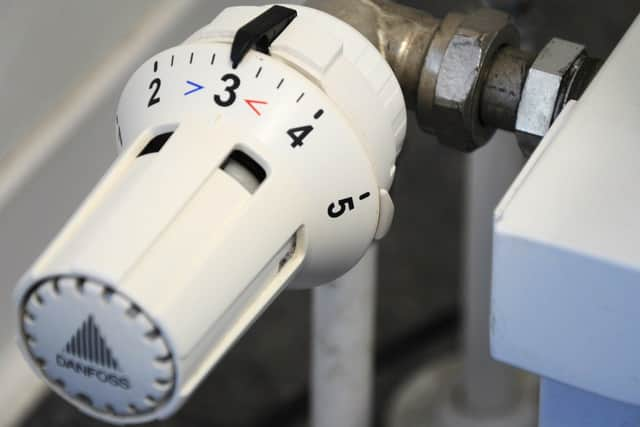Campaigners claim private-rent energy costs in Ashfield are unfairly high
and live on Freeview channel 276
Campaign group Generation Rent says private renters have put up with draughty homes for too long as lax regulations mean landlords can avoid making improvements.
Energy Performance Certificates (EPC) provide information on the energy efficiency of a building, and are required when a property is built, sold or let.
Advertisement
Hide AdAdvertisement
Hide AdHomes are rated from zero to 100, with a higher score reflecting more energy efficiency.


The median score for privately-rented flats with a rating in Ashfield was 66 in 2018-19, compared to 72.5 for those rented by social landlords, Office for National Statistics (ONS) data shows.
The median is a measure of the average which takes the middle of a range of figures, meaning it will not be skewed by exceptionally low or high ratings.
The estimated median energy cost – those for lighting, heating and hot water – for private renters was £643 a year, compared to £486.50 for social rented flats.
Advertisement
Hide AdAdvertisement
Hide AdThe figures do not cover all homes in the area, only those with a known EPC rating – the ONS estimates that 57 per cent of properties in Ashfield had a certificate at the end of March last year.
For privately-rented houses in Ashfield, the median EPC score was 61.5, while it was 69 for social renters, with energy bills coming in at £911.50 and £686.50 respectively – a difference of £225.
Dan Wilson-Craw, director of Generation Rent, said: “Private renters have had to put up with draughty homes for far too long, because there hasn’t been much of a carrot or a stick for landlords to insulate their properties.
“Even with recent minimum energy efficiency standards, landlords get an exemption if it would cost too much to make the necessary improvements.”
Advertisement
Hide AdAdvertisement
Hide AdThe Government has recently announced the new Green Homes Grant, whereby homeowners – including landlords – can get financial help to make energy efficiency upgrades, was an opportunity to make thousands of rented homes more comfortable.
The Government will pay vouchers of up to £5,000 – or £10,000 for some low-earners – to cover up to two-thirds of the cost of work done by approved tradespeople.
But Mr Wilson-Craw added: “The Government hasn’t told us how it will make sure the money goes to people who need it most.”
A Ministry of Housing, Communities and Local Government spokesman said new homes of all types are significantly more energy efficient than most older housing.
Advertisement
Hide AdAdvertisement
Hide AdHe added: “We are improving the quality of housing across the country by ensuring new homes adhere to strict energy efficiency standards, giving councils powers to deal with dangerous damp in privately rented homes, and enabling renters to take landlords who fail to provide decent living conditions to court.
“We’ve also introduced Green Homes Grants, worth up to £10,000, to help cover energy efficiency improvements, meaning hundreds of thousands of homes will be warmer and safer this winter.”